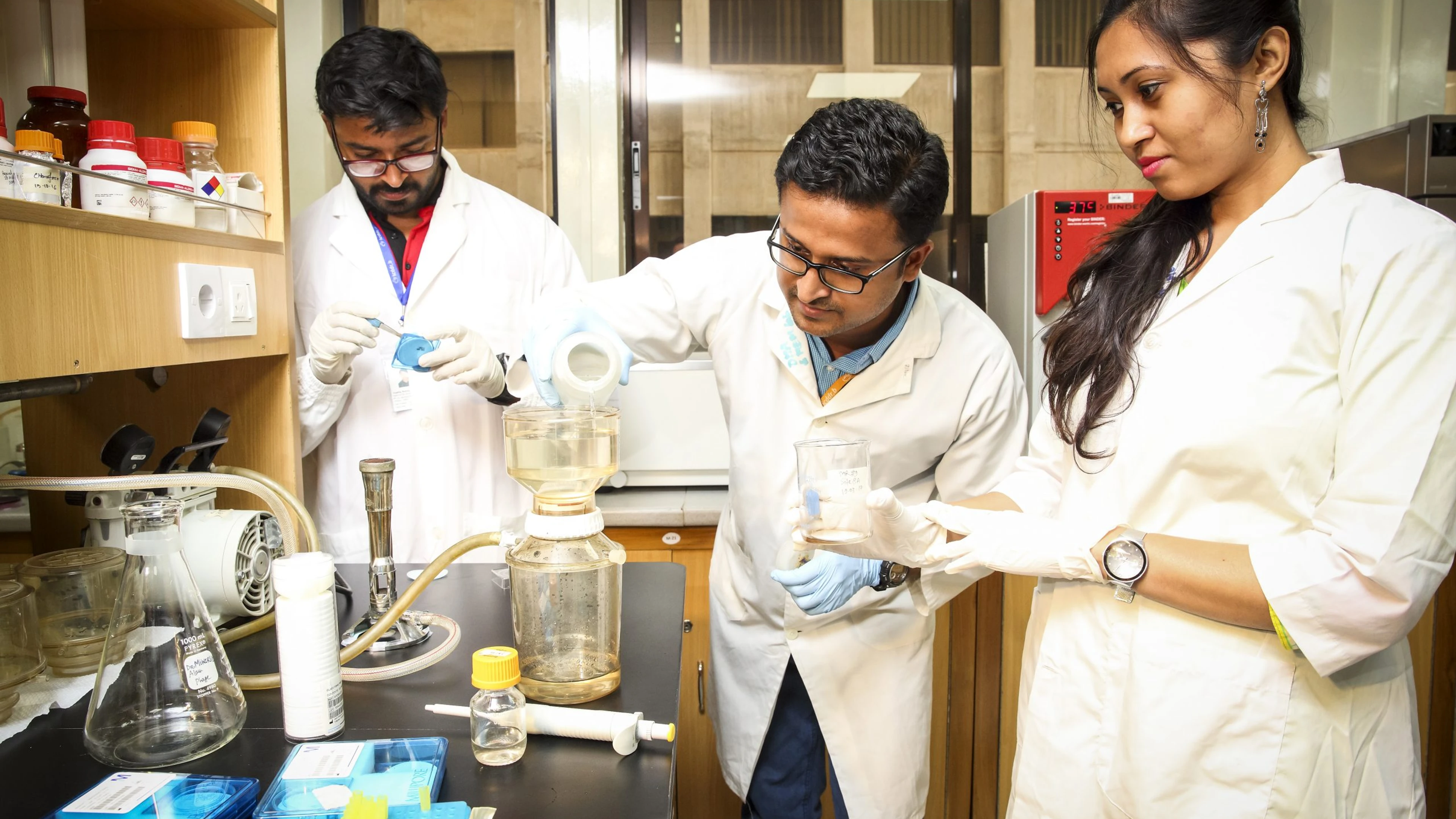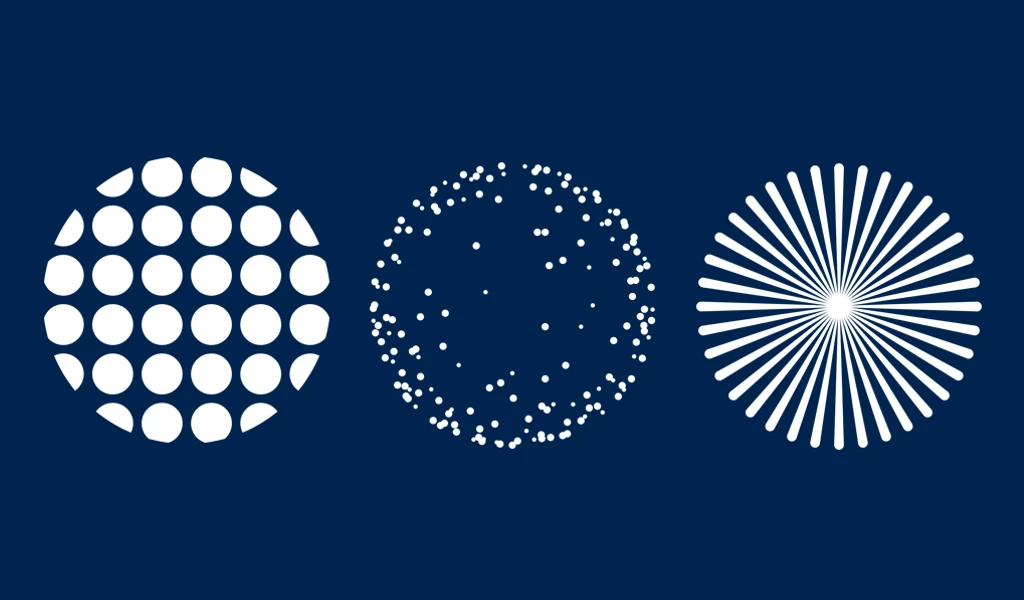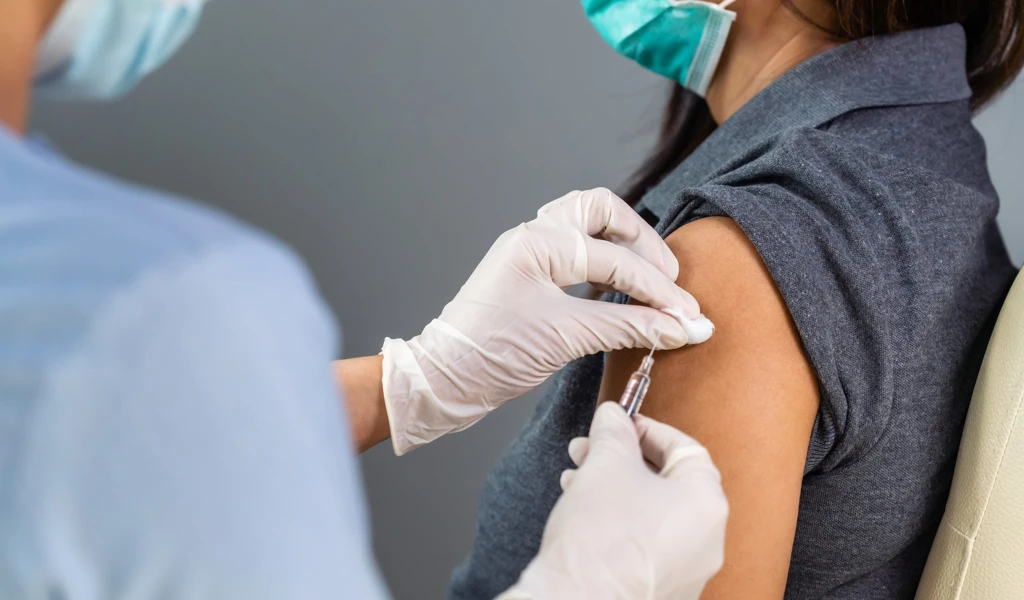CEPI establishes global network of laboratories to centralise assessment of COVID-19 vaccine candidates

Five laboratories initially selected to work together as part of centralised network to reliably assess and compare immunological responses generated by COVID-19 vaccine candidates
Global group will minimise variation between individual lab analyses to enable uniform way of evaluating and identifying the most successful candidates
All COVID-19 vaccine developers (both CEPI-funded and non-CEPI funded) can use the network.
*******
In order to monitor interest and adjust the testing capacity, we are requesting that all COVID-19 vaccine developers interested in using CEPI's centralised laboratory network complete this short survey. For any COVID-19 vaccine developer ready to submit their samples to the network, please complete our Sample Analysis Request Form.
*******
2 October 2020, Oslo, Norway —The Coalition for Epidemic Preparedness Innovations (CEPI) has today announced partnerships with five clinical sample testing laboratories to create a centralised global network to reliably assess and compare the immunological responses generated by COVID-19 vaccine candidates. Located across multiple regions globally, the laboratories initially selected for this vaccine-assessment network are: Nexelis (Canada) and Public Health England (PHE, UK), VisMederi Srl (Italy), Viroclinics-DDL (The Netherlands), icddr,b (formerly International Centre for Diarrhoeal Disease Research, Bangladesh), and Translational Health Sciences and Technological Institute (THSTI, India). The network will use the same testing reagents—originating in the labs of Nexelis and PHE—and follow common protocols to measure the immunogenicity of multiple COVID-19 vaccine candidates (both CEPI-funded and non-CEPI funded developers). This approach will ensure uniformity in assessment and informed identification of the most promising vaccine candidates. CEPI is actively negotiating with additional laboratories to participate in this network.
Advantages of centralising immunological response assessment
Typically, the immunogenicity of potential candidate vaccines is assessed through individual laboratory analyses, aiming to determine whether biomarkers of immune response—such as antibodies and T-cell responses—are produced after clinical trial volunteers receive a dose(s) of a vaccine candidate. However, with over 320 vaccine candidates against COVID-19 currently in development, there are likely to be numerous differences in data collection and evaluation methods. This includes potential variation in the range of correlates of immunity being measured by laboratories. Technical differences in how and where samples are collected, transported and stored can also occur, impacting the quality and usefulness of the data produced and making comparisons between measurements in individual laboratories difficult. In addition, with the wide range of COVID-19 vaccine approaches and technologies currently being deployed (e.g., recombinant viral vectors, live attenuated vaccines, recombinant proteins and nucleic acids), standard evaluation of the true potential of these vaccine formulations becomes very complex.
Through centralising the analysis of samples obtained from trials of COVID-19 vaccine candidates, the new clinical-sample-testing network will minimise variation in results obtained, which could otherwise arise due to such technical differences when carrying out independent analysis. The samples from participating vaccine developers will instead be tested in the same group of laboratories using the same methods, therefore, removing much of the inter-laboratory variability and allowing for head-to-head comparisons of immune responses induced by multiple vaccine candidates.
Supporting global COVID-19 vaccine development
Through this new network, up to the limit of programme funding, eligible COVID-19 vaccine developers (both CEPI-funded and non-CEPI funded developers) can use the laboratories, without per sample charges, to analyse the immune response elicited by their COVID-19 vaccine candidates in preclinical, Phase I and Phase IIa studies. Data obtained on the immunogenicity of CEPI-funded vaccine candidates will be used to inform and advance CEPI's COVID-19 vaccine portfolio by providing quick and accurate evaluation of its candidate vaccines.
By opening the sample testing network to other COVID-19 vaccine programmes, CEPI also aims to ensure that all eligible developers—regardless of their size—can benefit from this analysis. Certain commitments may be required for eligibility, such as making timely publication of sample testing results and sharing data that will be produced on the immunogenicity of COVID-19 vaccine candidates to facilitate future regulatory decisions. The number of samples available for testing per developer may be limited depending on response.
Encouraging data is now emerging on multiple COVID-19 vaccine candidates, however, there is no way to draw direct comparisons, as different labs may use different measurements to infer immune response.
The establishment of CEPI's centralised laboratory network is the first time a project has been done–at such speed and scale–in response to a pandemic. Our network of labs will operate as though vaccines are all being tested under one roof, to speed up assessment and identify successful vaccine candidates so that we move as quickly as possible to reduce the great suffering caused as a result of this global crisis.
With hundreds of COVID-19 vaccines in development around the world, it is essential that we have a system that can reliably evaluate and compare the immune response of candidates currently undergoing testing.
The launch of our new centralised lab network seeks to evaluate these vaccines against a common protocol to ensure alignment and information sharing when identifying the most promising candidates.
Through such an endeavour, we aim to work towards our ultimate ambition through COVAX to fund and deliver 2 billion doses of successful COVID-19 vaccine by the end of 2021 to help bring an end to the acute phase of this pandemic.
The establishment of this network is the result of a recent global Call for Proposals, issued by CEPI in early May, to identify and select potential partners to form a centralised group to directly assess multiple COVID-19 vaccine candidates. Laboratories were selected based on the capacity to perform such studies, the ability to work internationally to harmonise protocols and data, and their record of receiving and handling samples from multiple geographical locations, among other criteria.
CEPI has also opened a new Call for Proposals to extend the assessment to include clinical samples from late-stage clinical trials (Phase III and beyond). The Call is open to any laboratory worldwide until 4 October 2020.
This is of great pride for Nexelis to be entrusted by prestigious governmental and non-governmental organisations, such as CEPI, as a referral lab in the evaluation of COVID-19 vaccine candidates and see assays developed in house becoming the international standard all over the world. The fight against COVID-19 requires a collaborative mindset and we will make sure that colleagues working with the labs selected by CEPI are receiving the best possible support from our scientific team to be in a situation to provide highly accurate results.
Together with our strategic partner Nexelis, it took us just six months to develop a series of robust and scalable assays needed to evaluate vaccine candidates, when this usually takes eighteen months. This outstanding achievement would not have been possible without the engagement of our talented scientific teams and is proof of the benefit of collaboration between academic sites and private organisations.”
It is an honour for us to have been selected by CEPI as a reference laboratory for assessment of COVID-19 vaccine candidates. Since the beginning of the outbreak we have spent a lot of time developing and validating assays for COVID-19 vaccine assessment. We really believe that with our support the vaccines manufacturers can accelerate the licensure of vaccines. Collaboration with other laboratories will be strategic to improve the panel of available assays and find a solution to fight the pandemic.
We are proud to be a central linking pin in CEPI's global laboratory network and feel honored to support this initiative with a wide array of assay platforms and supply chain expertise. As a leading virology contract research organisation, we have deep knowledge and expertise to support pandemic prevention strategies. In parallel with CEPI's mission–to accelerate the development of vaccines against emerging infectious diseases–the entire Viroclinics-DDL team feels committed to contribute to this much needed effort.
Ensuring that immunological responses to COVID-19 vaccines are measured systematically in a manner that allows valid comparisons of vaccines will be essential to global efforts to identify those vaccines of greatest public health value. We commend CEPI's efforts to establish a centralised laboratory network, and, as an organisation with decades of experience in evaluating vaccines, we are keen to contribute to the network.
More than 30 COVID-19 vaccine candidates are being developed in India and are at various stages of clinical development. The Department of Biotechnology, Government of India is supporting efforts for vaccine development and testing. The bioassay laboratory at Translational Health Science and Technology Institute, an autonomous institute of Department of Biotechnology, is being supported by the Ind-CEPI mission of the Indian government, to provide validated assays for vaccine development at par with global standards. It is well-positioned to run comparability studies with other laboratories both nationally and internationally and will form an important part of the global network of centralised laboratories being supported by CEPI.
Working with CEPI and network labs is a great opportunity for THSTI to showcase and test its capabilities and raise the bar to meet the standards required for regulatory approval of COVID-19 vaccines both in India and abroad. It will be a learning experience that will help us to tackle ongoing and future challenges with harmonised protocols and validated assays.
About the Centralised Lab Network
The clinical sample testing laboratories selected for this collaborative vaccine network are: Nexelis (Canada) and Public Health England (PHE; UK), VisMederi Srl (Italy), Viroclinics-DDL (The Netherlands), icddr,b (formerly International Centre for Diarrhoeal Disease Research Bangladesh), and Translational Health Sciences and Technological Institute (THSTI, India). CEPI is actively negotiating with additional laboratories to participate in this network.
CEPI has approved costs of up to US $16million for this network. All COVID-19 vaccine developers can use this network for free to assess immunogenicity of their vaccine candidate against a common protocol, using clinical samples from preclinical, Phase I and Phase IIa trials. Samples shipment cost and documentation related to the shipment is the vaccine developer's responsibility.
All the research laboratories now part of the centralised network have track records of being able to run specific tests (ELISA/neutralisation assay/ELISPOT) for vaccine trials for other emerging infectious diseases. The most advanced validated COVID-19 test (assay) was selected and, alongside associated training, the assay protocol was provided to all laboratories involved in the network to perform the same sample analysis. The ELISAs and pseudoneutralisation assay will be provided by Nexelis, with PHE delivering the wild-type neutralisation. Nexelis and PHE will also supply critical reagents (antigens, pseudoparticles and wild-type virus) along with standards and controls to ensure assay combinability across the network. To ensure ongoing accurate assessment, laboratories will be required to assess a standard sample set every six months.
CEPI-funded COVID-19 vaccine developers are encouraged but are not obliged to use the centralised lab network. Results produced by the centralised lab network will be sent back to the COVID-19 vaccine developer — neither CEPI nor the laboratory who assessed the preclinical or clinical samples will own the data.
CEPI has also opened a new Call for Proposals to extend the assessment to include clinical samples from late-stage clinical trials (Phase III and beyond). The Call is open to any laboratory worldwide until 4 October, 2020. Eligibility requirements and application details are available on the CEPI website.
In order to monitor interest and adjust the testing capacity, we are requesting that all COVID-19 vaccine developers interested in using CEPI's centralised laboratory network complete this short survey. For any COVID-19 vaccine developer ready to submit their samples to the network, please complete our Sample Analysis Request Form.
Additionally, CEPI is developing a worldwide network of drug product manufacturers that may be available for COVAX supported COVID-19 vaccine manufacture. This network is planned to be geographically diverse with flexible support for formulation, fill and finish of several industry standard modalities of drug product manufacturing. For additional information, please contact [email protected].
About CEPI
CEPI is an innovative partnership between public, private, philanthropic, and civil organisations, launched at Davos in 2017, to develop vaccines to stop future epidemics. CEPI has moved with great urgency and in coordination with WHO in response to the emergence of COVID-19. CEPI has initiated nine partnerships to develop vaccines against the novel coronavirus. The programmes are leveraging rapid response platforms already supported by CEPI as well as new partnerships. Before the emergence of COVID-19, CEPI's priority diseases included Ebola virus, Lassa virus, Middle East Respiratory Syndrome coronavirus, Nipah virus, Rift Valley Fever and Chikungunya virus. CEPI also invested in platform technologies that can be used for rapid vaccine and immunoprophylactic development against unknown pathogens (Disease X). Follow our news page for the latest updates.
About CEPI's COVID-19 vaccine programmes
Built on the principles of speed, scale and equitable access, CEPI is currently supporting a diverse COVID-19 vaccine portfolio—the world's largest—of nine COVID-19 vaccine candidates. CEPI is also actively looking to expand its investments in further vaccine candidates to increase the chances of finding a successful vaccine and, alongside Gavi, the Vaccine Alliance and the World Health Organization (WHO) as part of the COVAX pillar of the Access to COVID-19 Tools (ACT) Accelerator, meet its goal to develop, manufacture and equitably deliver up to 2 billion doses of vaccine by the end of 2021.
To date, CEPI has raised up to US $1.3 billion of the $2.1 billion needed to support our COVID-19 vaccine programmes, including donations from sovereign governments, philanthropic institutions, private sector companies and public fundraising through the UN Solidarity Response Fund. Sovereign government investment includes funding from Canada and the UK; the locations for laboratories now part of the centralised network (Nexelis, Canada and Public Health England, UK). US $800m is still urgently required to support CEPI's COVID-19 vaccine R&D efforts.
Prior to the emergence of COVID-19, Canada and the UK had provided CEPI with vital funds to support our priority disease programmes. In addition, the Department of Biotechnology, Ministry of Science & Technology, Government of India is implementing the Ind-CEPI mission which aims to strengthen the development of vaccines for the diseases of epidemic potential in India as well as build coordinated preparedness in the Indian public health system and vaccine industry to address existing and emergent infectious threats in India. THSTI, a laboratory who is part of the centralised network, is an autonomous Institute of the Department of Biotechnology, Ministry of Science and Technology.
About Nexelis
With unrivalled expertise in immunology on both sides of the client/CRO relationship, and operating sites in North America (East and West Coast) and Europe, Nexelis is a leading provider of assay development and advanced laboratory testing services in the infectious diseases, metabolic diseases, and oncology fields. Our versatile team of scientists, working with our advanced technology platforms, were instrumental in the development, qualification, validation, and large-scale sample testing of assays that supported the FDA filing of almost 100 new molecular entities, including blockbuster vaccines, anti-viral drugs, and immunotherapy, gene and cell therapy products. For more information, please visit: www.nexelis.com or contact [email protected].
About Public Health England
PHE exists to protect and improve the nation's health and wellbeing and reduce health inequalities. It does this through world-leading science, research, knowledge and intelligence, advocacy, partnerships and the delivery of specialist public health services. PHE is an operationally autonomous executive agency of the Department of Health. It provides government, local government, the NHS, Parliament, industry and the public with evidence-based professional, scientific and delivery expertise and support. For more information on PHE visit www.gov.uk/phe or follow on Twitter @PHE_uk.
About Vismederi
VisMederi is a globally skilled, well-resourced Research and Service Company that supports businesses and big pharma industries in improving public health through the development and optimization of safer and more effective drugs and vaccines.
VisMederi, born in 2009, has its headquarters in Siena, Italy, where it conducts and perfects serological tests to evaluate the immunogenicity of vaccines, creates and validates bioanalytical methods and experimental protocols for the release of therapeutic molecules and vaccines in development phases and performs quality control during the intermediate stages of vaccine production.
About Viroclinics-DDL
Viroclinics-DDL is a global leading virology contract research organization, serving the biopharmaceutical community with a broad range of preclinical research, clinical diagnostic, assay development and clinical trial logistic services. Viroclinics-DDL's extensive experience with clinical and preclinical studies for viruses, including its specialty in respiratory viruses, puts the company at the forefront in supporting the development of vaccines, antibodies and antiviral compounds targeting viral infectious diseases. Our in-house state of the art preclinical and clinical BSL-2 and BSL-3 laboratories allow for complex experiments with highly pathogenic organisms. Viroclinics-DDL is based in The Netherlands and employs more than 270 well-trained, dedicated scientists and technical experts. For more information: www.viroclinics.com and www.ddl.nl
About icddr,b
icddr,b is an international health research institute based in Bangladesh. It was established in 1960 and internationalised in 1978 by a special Ordinance of the Government of the People's Republic of Bangladesh, followed by a resolution voted by 26 countries and agencies at the World Health Organization Assembly in 1979. icddr,b strives to solve major public health challenges through high quality scientific research and innovation. Policymakers and practitioners utilise the evidence and expertise to improve health outcomes worldwide. Established more than 60 years ago, icddr,b continues to provide life-saving services in Bangladesh and beyond.
About THSTI
Translational Health Science and Technology Institute (THSTI) is an autonomous Institute of the Department of Biotechnology, Ministry of Science and Technology, Govt. of India. The institute is an integral part of the interdisciplinary NCR Biotech Science Cluster located at Faridabad, and is designed as a dynamic, interactive organization with the mission to conduct innovative translational research and to develop research collaborations across disciplines and professions to translate concepts into tangible products to improve human health.
About Ind-CEPI
The Department of Biotechnology, Ministry of Science & Technology, Government of India is implementing the Ind-CEPI mission titled ‘India Centric Epidemic Preparedness through Rapid Vaccine Development: Supporting Indian Vaccine Development Aligned with the Global Initiative of the Coalition for Epidemic Preparedness Innovations (CEPI)'. Ind-CEPI Mission aims to strengthen the development of vaccines for the diseases of epidemic potential in India as well as build coordinated preparedness in the Indian public health system and vaccine industry to address existing and emergent infectious threats in India.
Media Contacts
CEPI - Email: [email protected] | Phone: +44 7387 055214


